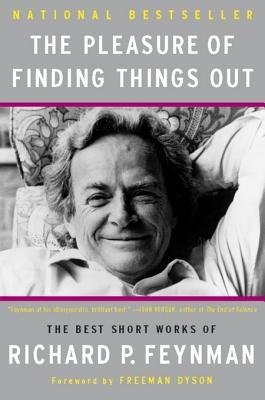More on this book
Community
Kindle Notes & Highlights
“Nature herself was proud of his designs, And joyed to wear the dressing of his lines, . . .
He was struggling, more intensely than I had ever seen anyone struggle, to understand the workings of nature by rebuilding physics
always playing with ideas
The things that mattered were honesty, independence, willingness to admit ignorance.
That’s why scientists persist in their investigations, why we struggle so desperately for every bit of knowledge, stay up nights seeking the answer to a problem, climb the steepest obstacles to the next fragment of understanding, to finally reach that joyous moment of the kick in the discovery,
Feynman always said that he did physics not for the glory or for awards and prizes but for the fun of it,
for the sheer pleasure of finding out how the world works, what makes it tick.
rambunctious
but that was more the pleasure of finding things than the pleasure of finding things out.
it’s not just beauty at this dimension of one centimeter, there is also beauty at a smaller dimension, the inner structure.
he knew the difference between knowing the name of something and knowing something,
The prize is the pleasure of finding the thing out, the kick in the discovery, the observation that other people use it [my work]–those are the real things, the honors are unreal to me.
don’t think a person can fully appreciate, or in fact can appreciate much of, these particular aspects of the world, the great depth of character of the universality of the laws, the relationships of things, without an understanding of mathematics.
there are many, many aspects of the world that mathematics is unnecessary for, such as love, which are very delightful and wonderful to appreciate and to feel awed and mysterious about;
physics and if that’s what you’re talking about, then to not know mathematics is a severe limitation in understanding the world.
quarks–they are called u-type, d-type, s-type. Two Us and a d made a proton, two ds and a u made a neutron.
My theory is that the best way to teach is to have no philosophy, [it] is to be chaotic and [to] confuse it in the sense that you use every possible way of doing it.
I have the advantage of having found out how hard it is to get to really know something, how careful you have to be about checking the experiments, how easy it is to make mistakes and fool yourself.
You see, one thing is, I can live with doubt and uncertainty and not knowing. I think it’s much more interesting to live not knowing than to have answers which might be wrong.
don’t feel frightened by not knowing things, by being lost in a mysterious universe without having any purpose, which is the way it really is so far as I can tell. It doesn’t frighten me.
awesome distinction of being the only man to stare straight at the first atomic blast without protective goggles, an experience that changed Feynman forever.


